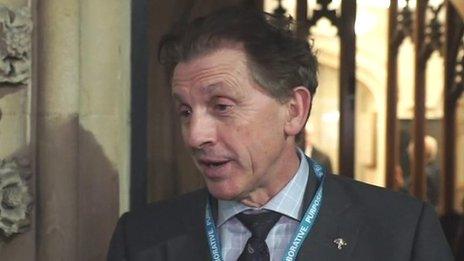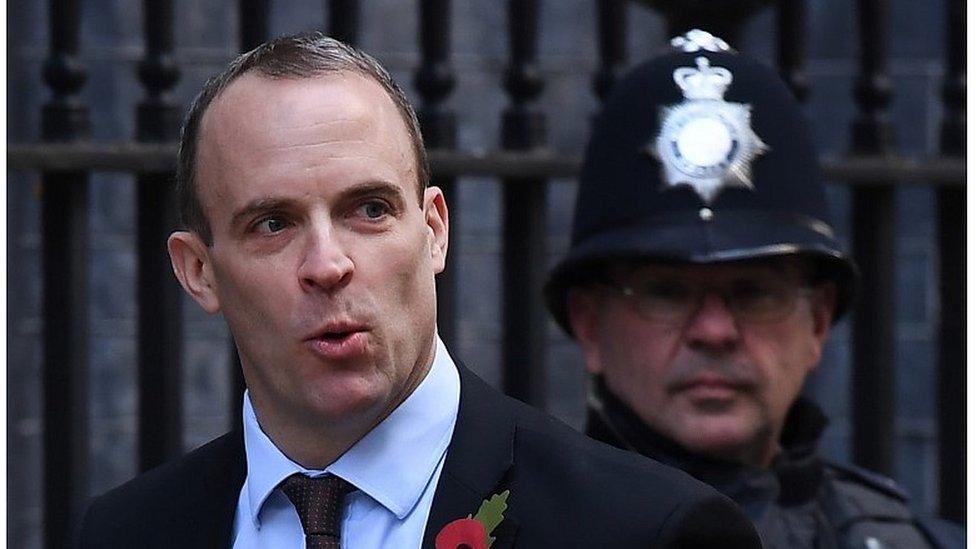UK business leaders more optimistic after May meeting
- Published
Nigel Wilson tells the BBC's Simon Jack about his meeting with Theresa May and Philip Hammond.
UK business leaders are sounding more optimistic after a meeting with the chancellor and the prime minister.
The traditional post-Budget briefing for business was a more significant affair than usual this year.
Theresa May joined Philip Hammond at London's Guildhall to reassure business leaders that their concerns mattered.
After two years feeling sidelined, bosses said they were encouraged to be back "inside the tent" when it comes to talks about the UK's economic future.
They spoke of a new sense of confidence about Brexit and the economy.
Some 150 business people were at the event on Wednesday evening, including Legal & General chief executive Nigel Wilson, chief executive of Legal & General.
He said there was a new "assured confidence" from the prime minister and chancellor about Brexit negotiations and Britain's future.
"There was a sense that they have got their mojo back," Mr Wilson said. "There was an air of confidence that we didn't see in 2017."
Executives said that both politicians acknowledged it was important to re-build bridges with the business community, which had sometimes felt sidelined in the last couple of years.
Rupert Soames, chief executive of Serco, said it was good to be "back inside the tent", adding: "There was a recognition [by the PM and chancellor] of the uncertainty that business is feeling."
He described the meeting as a "confident and well-timed event".
Back in Club UK
Questions in the hall proved that the outcome of Brexit was still a major concern, with Andy Palmer, boss of Aston Martin, saying the luxury car maker was considering flying in parts as a contingency against potential hold ups at the border if the UK leaves the EU without a deal that provides frictionless trade.
Aston Martin would be raising stock levels. And while he did not see a risk that the carmaker would stop production, he said the contingency plans "would be more expensive".
Asked if, following the meeting, he was any happier about the threat of supply chain disruption, Mr Palmer said: "We plan for the worst and hope for the best."
Other bosses remained cautious on both Brexit and the Budget. The executive of one large volume car producer told the BBC it held an inventory of four hours worth of parts and air freight was not an option.
While a High Street bank chairman said that in the face of Brexit he would have had the chancellor "keep more powder dry" rather than spend the £74bn windfall - received from better public finance forecasts - all in one go by increasing spending and lowering income tax earlier than promised.
Overall, the mood music from business was more positive - if only in the sense that they felt they were back on list of Club UK.
- Published31 October 2018

- Published31 October 2018

- Published31 October 2018